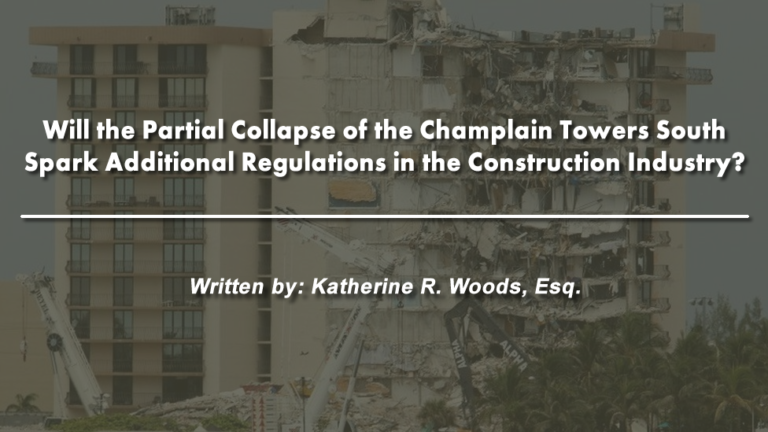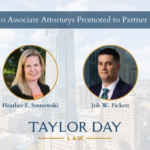The heartbreaking tragedy of the partial building collapse of the Champlain Towers South has prompted the obvious questions concerning the cause of the collapse, and what led to the cause. While the investigation is underway, discussions have surfaced as to whether additional regulations should or will be put in place in Florida governing the inspection of building structures. The Champlain Towers stood for 40 years before the partial collapse.
Section 8-11(f)(ii)(1) of the Miami-Dade County Code states that “All buildings, except single-family residences, duplexes and minor structures as defined below, shall be recertified in the manner described below where such buildings or structures have been in existence for forty (40) years or longer, as determined by the Building Official, who shall at such time issue a Notice of Required Inspection to the building owner.” Champlain Towers South had begun its 40-year recertification process when the building fell. While the recertification requirement does exist in some Florida counties, it is not a statewide requirement. Many lawmakers have already come out in favor of making the 40-year certification requirement a statewide requirement. But there are also those that favor additional regulations, arguing that 40 years is simply too long to wait for critical structural inspections. Certain Florida lawmakers in favor of additional regulations have spoken out about a need for additional regulations statewide. However, some have argued that additional regulations should be in place for buildings in coastal areas specifically.
Many citizens and lawmakers have already begun to urge an expansion of inspection requirements statewide. However, whether the collapse of the Champlain Towers South will actually spark the passage of additional regulations for the oversight of renovations and review of structures remains to be seen. Florida lawmakers return for their first interim committee meetings at the end of September and we believe condominium and other high-rise structural regulations will be the focus of several bills.


